
When it came to deciding where drug giant AstraZeneca would expand its work making biologic medicines, there was no question the project would happen in Maryland, the company's top U.S. official said this Wednesday. "I don't know where else we would go in terms of innovation," said Paul Hudson, AstraZeneca's U.S. president as the company unveiled progress on its $200 million expansion in Frederick.

Circulomics Inc has been awarded a $1.5M Phase II Small Business Innovation Research (SBIR) grant by the National Institutes of Health (NIH) - National Institute of General Medical Sciences (NIGMS) to develop its Ligo-miR microRNA assay platform. This award follows a previous $400k Phase I award and will create a comprehensive portfolio of Ligo-miR products designed to address broad swaths of the microRNA market.

Emergent BioSolutions announced that a new phase I study has begun at the University of Oxford that will evaluate the use of its modified vaccinia Ankara (MVA) Ebola Zaire vaccine candidate as a prime boost to GlaxoSmithKline’s (GSK - Analyst Report) Chimp Adenovirus type 3 Ebola vaccine candidate.
The study will enroll 38 volunteers and be conducted in the UK and is being supported by a grant from the Wellcome Trust and the UK Department for International Development. Emergent BioSolutions manufactured the supply of MVA Ebola Zaire vaccine candidate to be used in this phase I study.
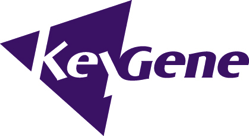
On April 30, 2015, KeyGene USA, celebrated the opening of its new R&D facilities co-located at the University of Maryland’s Institute for Bioscience and Biotechnology Research (IBBR) in Rockville, Maryland. The R&D facilities include offices, molecular biology labs, a state-of-the-art greenhouse and access to modern growth chambers, tissue culture facilities and other resources. KeyGene USA is part of KeyGene, a leader in molecular breeding and translational agriculture with its headquarters in Wageningen, the Netherlands. KeyGene USA’s research programs will primarily be focused on crops of significance to the North and South American markets.

Like almost everyone else, doctors and nurses now use smartphones on a regular basis. So what's the best way for the healthcare industry to take advantage of that?
That was the theme of many of the projects being developed in this year's DreamIt Health Baltimore program, an intensive four-month bootcamp for health-tech startups that began in January. For the second year in a row, Johns Hopkins University and Johns Hopkins Medicine co-sponsored the accelerator program in Baltimore, with the six startups setting up shop at an Inner Harbor work space.

Internet2 has announced the establishment of a new award, honoring the lifelong contributions of the chancellor of the University System of Maryland (USM). The Internet2 William “Brit” Kirwan Mentorship Award will be presented annually, beginning in 2016, to a member of the Internet2 community who embodies the spirit of Kirwan’s role as a mentor to countless professionals in the research and education (R&E) community. He is well known for his ability to connect people in higher education and inspire others, and for giving his time to serve the community. Kirwan, a long-time Internet2 supporter and member of its Board of Trustees, will step down from his USM chancellorship next month.

Funding: Biotechnology Investor Incentive Tax Credit (BIITC)
Maryland’s Biotechnology Investment Incentive Tax Credit (BIITC), created to assist the state’s early stage life sciences companies raise funding, is one of the most generous programs of its kind in the country. The program provides refundable income tax credits equal to 50% of an eligible investment to investors in qualified Maryland biotechnology companies (QMBCs). Although recipient companies must be based in Maryland, investors from outside the State (including outside the U.S) are encouraged.
Investments from $25,000 to $500,000 per individual investor are eligible, with a company limit of 15% of the annual budgeted credit amount ($1,800,000 of credit per company in FY2016 [July 1, 2015 - June 30, 2016]). To date, 75 companies have taken advantage of the program, receiving $69M in credits and later $450M+ in follow on investment.

BioHealth Innovation, Inc. (BHI), a public-private partnership and innovation intermediary is seeking an energetic and motivated life science professional for the role of an Entrepreneur-In-Residence (EIR) with product development experience and subject matter expertise in the fields of neurology and neuroscience. The EIR will reside within the National Institutes of Health (NIH) and will also support intramural and extramural initiatives on an as needed basis.
The EIR program was established at BioHealth Innovation to:
- Retain and bring entrepreneurial talent to the Maryland ecosystem
- Connect resources including institutions, technology assets, people and capital within Maryland that include federal institutions, labs, academic institutions, small businesses, disease foundations and the investor community
- Build/support sustainable life science startups that will add value within the healthcare system and also build upon the existing infrastructure
The EIR will work with BHI leadership to ensure that the activities and outcomes are aligned with BHIs strategic focus.

A mid-stage trial of Roche Holding AG's experimental immunotherapy showed that it doubled the likelihood of survival for lung cancer patients with the highest levels of a specific biomarker.
The drug, known by the code name MPDL3280A, is part of a new class designed to help the body's immune system fend off cancer by blocking a protein known as Programmed Death receptor (PD-1), or a related target known as PD-L1, used by tumors to evade the body's defenses.

Luis Branco didn't originally plan to head to the front lines of the Ebola crisis.
His Germantown-based startup, Zalgen Labs LLC, was testing its diagnostic kits in Sierra Leone last May for a different illness called Lassa Fever, which is endemic in West Africa and kills scores of people there every year. But then, Ebola began to spread.

As a serial entrepreneur who now runs an Israel-based platform that helps companies raise money from investors, Jon Medved has seen more than a few locales.
“If you’re looking for innovation outside of Silicon Valley in the states, you can really do no better than Maryland,” said Medved, the CEO of OurCrowd.
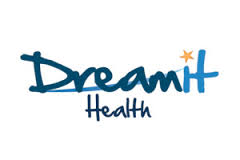
Continuing on its current investment spree, Chinese internet giant Tencent has now led a $750K seed funding round for Tissue Analytics, a tele-medicine app that guides you to take care of chronic wounds.
Existing investor DreamIt Health — the Philadelphia-based accelerator program which Tissue Analytics is an Alumni of (the startup got a pre-seed fund from the accelerator program), also participated in the round along with numerous other angel investors from Philadelphia.

A U.K. government-appointed review team into the issue of antibiotic resistance, headed by economist Jim O'Neill, has urged the global pharmaceutical industry to fund a $2 billion innovation fund to kick-start research into new antibiotics. O'Neill argues that without the fund, the incentive for major pharmaceuticals to develop new antibiotics is not there. This is due to the low return-on-investment and too great a focus on short-term profit-and-loss. The issue of "who pays for new antibiotics?" was recently posed by Magnus Steigedal, director of the Norwegian University of Science and Technology's (NTNU) Strategic Research Area on Health, who came to a similar conclusion that the world cannot wait around for big pharma alone.

Forest City Enterprises and its partners on Friday will break ground on a $65.6 million, 165,000-square-foot building at 1812 Ashland Ave. that will be a hub for Johns Hopkins University’s efforts to commercialize research.
Construction is expected to be completed in August 2016.

In just three months, demand for lab and office space at the Johns Hopkins innovation hub, FastForward East, has exceeded supply. The FastForward program, designed to move academic findings through translational research into the commercial marketplace, was introduced to East Baltimore earlier this year in an interim facility in the Rangos Building at 855 N. Wolfe St. In that time, all of its offices and lab benches have been rented.
Currently, preparations are being made to expand FastForward East from 6,000 square feet to 25,000 square feet of office and lab space. This facility will be a part of a new seven-level, $65.6 million laboratory and office building development, 1812 Ashland.

The NIH is the premier biomedical research center for the world. Its 27 Institutes and Centers employ approximately 18,000 employees doing a vast array of jobs, all supporting efforts for a healthy nation. For information on the NIH mission, goals, and Institutes and Centers, visit NIH Overview
This position is located in the Transfer Technology Center (TTC) of the National Cancer Institute, National Institutes of Health. The candidate selected for this position serves as a member of one of the Technology Transfer Center Units with responsibility for advising on and performing the full range of services that facilitate the transfer of new technologies and research materials, particularly with the private sector, for further research or commercial development as appropriate. Works closely with industrial, academic and federal scientists in the development and execution of complex Cooperative Research and Development Agreements (CRADAs). Manages and monitors the processes for handling CRADAs and potential inventions and licenses. Originates Material Transfer Agreements (MTAs), Confidential Disclosure Agreements (CDAs), Clinical Trial Agreements (CTAs), and other agreements required by the organizations serviced. Advises scientists on the suitability of each agreement for desired research project. Collaborates with the NIH Office of Technology Transfer to ensure that the interests of the NCI are represented in all technology transfer matters. Advises researchers and administrators on matters involving both domestic and foreign patent rights, policies and procedures. Participates in the development and conduct of educational programs designed to train NCI intramural and extramural scientists and administrative staff about inventions, patents, licensing, trade secrets, copyrights, and research and development agreements. Provides advice and guidance in resolving intellectual property issues in a variety of grants and contract initiatives. For more information, please visit http://ttc.nci.nih.gov/

The Tech Council of Maryland (TCM), Maryland’s largest technology trade association, last night announced the winners of its 27th Annual Industry Awards. The celebration and ceremony, which took place at the Bethesda North Marriott Hotel & Conference Center, was attended by more than 700 technology and business leaders from around the state.
“The breadth of accomplishments of this year’s award recipients is impressive – from the innovations being developed here in Maryland to the leadership of executives and educators to foster inspired workplace and school environments,” said Phil Schiff, TCM’s CEO. “We are proud to honor this year’s winners, which underscore the quality and value of the state’s technology and life sciences communities, and the importance of their work around the world.”

Soligenix, Inc. (OTCQB: SNGX) (Soligenix or the Company), a late-stage biopharmaceutical company developing products that address unmet medical needs in the areas of inflammation, oncology and biodefense, announced today that it has initiated a development agreement with Emergent BioSolutions to implement a commercially viable, scalable production technology for the RiVax™ drug substance protein antigen. RiVax™ is a vaccine candidate being developed to protect against ricin exposure. Soligenix will transfer the manufacturing processes and analytics to Emergent to conduct process development work that could potentially lead to a future commercial manufacturing collaboration.

Cancer is costly, pervasive and a growing problem for businesses.
It already accounts for between 10 percent and 15 percent of employers' health costs. As employees work longer before retiring, the bill could get bigger. That’s why Johns Hopkins Medicine is launching a new program that could reduce the business costs of cancer by helping employees better prepare for and cope with it.

Tuesday, July 14, 2015 - Wednesday, July 15, 2015 - Bethesda, MD
MedCity ENGAGE is an executive-level event featuring the most innovative thinking from payers, providers, policymakers, health IT and beyond to highlight best-in-class approaches to one of the biggest challenges in healthcare: patient engagement. It will feature speakers discussing the current attempts to innovate in care delivery and reimbursement, along with the innovations that will form the backbone of technological infrastructure. We're here to help.
If you have questions regarding registration contact events@breakingmedia.com

AstraZeneca (NYSE: AZN) announced that it has entered an agreement with Abbott (NYSE: ABT), a global healthcare company, to develop companion diagnostic tests to identify patients with severe asthma who are most likely to benefit from the investigational biological therapy, tralokinumab. To date, no companion diagnostic blood tests have been approved for use in asthma.
Under the terms of the agreement, Abbott will develop and commercialise diagnostic tests to measure serum levels of the proteins periostin and DPP4 (dipeptidyl peptidase-4), which have been identified as potential predictive biomarkers of up-regulated IL-13 in severe asthma. The tests will be developed in conjunction with AstraZeneca’s Phase III trial of tralokinumab, a potential treatment for patients with severe, inadequately controlled asthma, developed by the company’s biologics research and development arm, MedImmune. Periostin has been previously described as a potential biomarker for asthma1, and DPP4 is a novel and promising predictive biomarker identified by MedImmune.
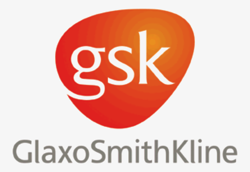
A new phase 1 study has begun at the University of Oxford that will investigate the use of a modified vaccinia Ankara (MVA) Ebola Zaire vaccine candidate (MVA EBOZ) as a prime-boost to GSK's Chimp Adenovirus type 3 (ChAd3) Ebola vaccine candidate. The study, being conducted by the clinical research group of Professor Adrian Hill of the Jenner Institute, has received regulatory approval to begin from the United Kingdom's Medicines and Healthcare Products Regulatory Agency (MHRA).
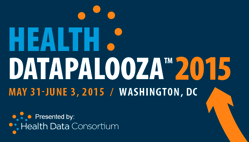
May 31-June 3, 2015 - Washington, DC
Health Datapalooza is a national conference focused on liberating health data, and bringing together the companies, startups, academics, government agencies, and individuals with the newest and most innovative and effective uses of health data to improve patient outcomes.

A lot of people make news in the biopharma business. Few of them are influential.
Influence, simply put, is the ability to make your mark in such a way as to get other prominent people in this business to rethink the way they do business. Last year, that definition caused us to put GlaxoSmithKline's ($GSK) Deirdre Connelly on the list for her plan to do away with sales quotas in the U.S. The influential idea then was that ethics had to come before numbers--a big issue at a company that has been challenged time and again by an unethical approach to business that spurred a series of sordid messes and a second take at a painful reorganization.

How many types of cells are there in the human body? Textbooks say a couple of hundred. But the true number is undoubtedly far larger.
Piece by piece, a new, more detailed catalogue of cell types is emerging from labs like that of Aviv Regev at the Broad Institute, in Cambridge, Massachusetts, which are applying recent advances in single-cell genomics to study individual cells at a speed and scale previously unthinkable.
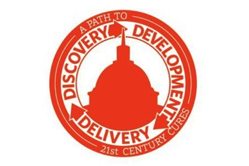
The 21st Century Cures bill advanced Thursday when The House Energy and Commerce health subcommittee sent the unanimously passed bill onto the full committee, which will address it next week.
The bill could potentially be enacted into law later this year.

Drug costs are astronomical – this we know.
But we don’t have a transparent, informed way of calculating – or understanding – the true costs of drug development, argued Dr. Jerry Avorn, a professor of pharmacoeconomics at Harvard University, in this week’s New England Journal of Medicine.

Awful patient experience, poor communication, increasing out-of-pocket costs. Investors assembled for a panel discussion of the future of investing in aging technology at the AARP Innovation@50+ focused more on pain points that could apply to healthcare generally not specifically to senior care.
Jody Holtzman, senior vice president of thought leadership at the AARP, moderated the panel.

What’s the difference between a “good” state for telemedicine and a “bad” one?
The American Telemedicine Association released two reports at its annual conference earlier this month in Los Angeles, a state-by state analysis of coverage and reimbursement policies for telemedicine services and another on physician practice standards and licensure in each state.
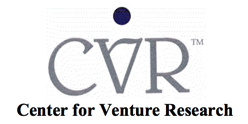
The angel investor market in 2014 had a slight correction in investment dollars and in the deal size. Total investments in 2014 were $24.1 billion, a decrease of 2.8% over 2013, according to the Center for Venture Research at the University of New Hampshire. A total of 73,400 entrepreneurial ventures received angel funding in 2014, an increase of 3.8% over 2013 investments. The number of active investors in 2014 was 316,600 individuals, an increase of 5.9% from 2013. The change in both total dollars and the number of investments resulted in a deal size for 2014 that was smaller than in 2013 (a decrease in deal size of 6.4% from 2013). These data indicate that angels were active investors in 2014 but at decreased valuations than in previous years, indicating a slight market correction in valuations. However, the $24.1 billion is a robust amount and is close to the market high of $26.0 billion that occurred in 2007.

Washington, D.C., mayor Muriel Bowser has named Matt Bailey the first director of technology innovation for the Office of the Chief Technology Officer.
The appointment is part of an effort to create innovative solutions to address the challenges that Washington, D.C., faces as a city, said Bowser in a release.

There seems to be something special about coworking spaces. As researchers who have, for years, studied how employees thrive, we were surprised to discover that people who belong to them report levels of thriving that approach an average of 6 on a 7-point scale. This is at least a point higher than the average for employees who do their jobs in regular offices, and something so unheard of that we had to look at the data again.